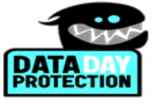December 2009
From July 2009 until December 31, 2009, the European Commission held a consultation on the legal framework for the fundamental right to protection of personal data. The objective of the consultation was to obtain views on the new challenges for personal data protection in order to maintain an effective and comprehensive legal framework to protect individual’s personal data within the European Union. Privacy International has responded to the European Commission's consultation highlighting its vitally support to the Directive and how it has indeed provided Europe, and the world, with a benchmark for privacy protection. PI's responds is available here.
The Madrid Privacy Declaration is a substantial document that reaffirms international instruments for privacy protection, identifies new challenges, and recommends specific actions.Over 250 civil society organizations, bloggers, activists, privacy experts, geeks from more than 40 countries have signed the Madrid Privacy Declaration. The declaration urge countries around the world to safeguard privacy, a fundamental human right. Governments and corporations are gathering too much information on individuals, with too few protections. New systems of identification, tracking and surveillance threaten the rights of citizens and consumers.
The European Civil Society Data Protection Award aims at rewarding positive initiatives contributing to the visibility and effectiveness of the right to privacy and to the protection of personal data in Europe. By yearly honoring outstanding achievements in the field, it wishes to enhance public awareness, stimulate creative and constructive input, and favor useful exchanges of information at the European level.
Association Européenne pour la défense des Droits de l'Homme and European Digital Rights invite all non-governmental organisations, trade unions, non-profitinstitutions and any other civil society actor to participate and to submit their applications. Deadline: 15 January 2010 - Send to: nominations@ecsdpa.org. All the information about the Award is available here.
On December 18, 2009, the Telecom Package took effect with its publication in the Official Journal of the European Union. The Package brings 12 reforms to pave way for stronger consumer rights, an open internet, a single European telecoms market. Under the ePrivacy directive, communications service providers will also be required to notify consumers of security breaches, persistent identifiers ("cookies") will become opt-in, there will be enhanced penalties for spammers, and national data protection agencies will receive new enforcement powers. Member states then have 18 months to transpose the Directive into national law.
The Electronic Privacy Information Center (EPIC), joined by nine privacy and consumer organizations, today filed a complaint with the Federal Trade Commission (FTC) charging that Facebook's recent changes to user privacy settings violate federal consumer protection law.
The EPIC complaint urges the Trade Commission to open an investigation into the recent changes made by Facebook to the privacy settings of Facebook users and to require Facebook to restore privacy safeguards.
This is the most significant case now before the Federal Trade Commission, said Marc Rotenberg, EPIC Executive Director. More than 100 million people in the United States subscribe to the Facebook service. The company should not be allowed to turn down the privacy dial on so many American consumers.
The Consumer Travel Alliance is conducting a survey of travelers attitudes toward biometric screening. This includes fingerprinting, photographs and iris scans. It will mean more time passing through international borders and require visitors to share far more information than before with border control agents. Take the survey and say NO to biometric Identifiers!
The Civil Society Madrid Privacy Declaration signed by more than 300 non for profit organizations, individuals and expert around the world called for a moratorium on the development of the implementation of new systems of mass surveillance, like "biometric identifiers." Sign now the Madrid Privacy Declaration.
On December 3, 2009, the Memorandum of Montevideo was presented in Mexico DF. The general objective of the document is to contribute to promote awareness of the risks that social networking can pose to children and adolescents. The presentation of the Memorandum of Montevideo in Mexico was an opportunity to bring together representatives from industry, media, legislators, judges, parents, civil society organizations and education authorities in order to promote and encourage the adoption of public policies aimed at protecting children's online privacy.
AEDH (European Association for the Defence of Human rights) and EDRI (European Digital Rights) launch the first edition of the European Civil Society Data Protection Award (ECSDPA). The prize aims at rewarding positive initiatives contributing to the visibility and effectiveness of right to privacy and to the protection of personal data in Europe. The ECSDPA prize will be awarded each year on 28 January, as a European Civil Society contribution to the Data Protection Day.
On December 10, 2009 UNESCO and the Internet Corporation for Assigned Names and Numbers (ICANN) signed an agreement to help put into operation the first multilingual domain names. The cooperation agreement follows the recent decision by the Internet Corporation for Assigned Names and Numbers (ICANN) to introduce IDNs, or Internationalized Domain Names, in non-Latin script. Until now, domain names in Internet addresses (for example .org, .com) were written using characters from the Latin alphabet exclusively.
Facebook is asking users to review and update their privacy settings. However, the privacy recommendations, suggested by Facebook, may result in greater disclosure than users intend. Facebook faces ongoing privacy scrutiny following Beacon, proposed changes to the Terms of Services, and a settlement now pending in California. EPIC has urged Facebook to respect user privacy settings. EPIC is also defending the privacy rights of Facebook users who participated in Beacon. For more information, see EPIC: Facebook Privacy.
It is our duty to ensure that these rights are a living reality -- that they are known, understood and enjoyed by everyone, everywhere. It is often those who most need their human rights protected, who also need to be informed that the Declaration exists -- and that it exists for them.
Secretary-General Ban Ki-moon
On the occasion of the 61st anniversary of the Universal Declaration of Human Rights, the Public Voice coalition calls on people around the world to sign the Civil Society Madrid Declaration. The Madrid Declaration affirms "that privacy is a fundamental human right set out in the Universal Declaration of Human Rights, the International Covenant on Civil and Political Rights, and other human rights instruments and national constitutions;" reminds "all countries of their obligations to safeguard the human rights of their citizens and residents." The Madrid Declaration warns that "privacy law and privacy institutions have failed to take full account of new surveillance practices." The Declaration urges countries "that have not yet established a comprehensive framework for privacy protection and an independent data protection authority to do so as expeditiously as possible."
Please, celebrate human rights day today, and spread the word of the campaign!
Facebook announced that it intends to eliminate regional networks, which allow users to restrict information shared with others based geography. The social networking service will also modify the site's privacy settings and require users to update the rules governing who can access their data. In February, revisions to Facebook's terms of service prompted users to revolt and Facebook to rescind the changes hours before EPIC planned to file a complaint with the Federal Trade Commission. Prior changes to the service resulted in disclosure of Facebook users' video rental records without their permission, prompting federal lawsuits. For more, see EPIC Facebook Privacy and Social Networking Privacy
Google has announced Google Public DNS, which will route all requests for internet addresses, a core Internet function, through Google's servers. These requests would normally only pass through the servers of the users' internet service providers. Google's DNS service does not use the new authentication standard DNSSEC, but instead uses a proprietary security method. By tradition, DNS is a distributed function, subject to an open standard-setting process. For more information, see EPIC DNSSEC.
A recently released paper from Lauran Gelman called Privacy, Free Speech, and 'Blurry-Edged' Social Networks discusses the technological, social, and legal regimes that have created this framework, and proposes a technical solution to permit users to maintain networks with blurry edges while still appropriately protecting speech and privacy concerns.
In mid 2009, a Cambridge's research named The Privacy Jungle: On the Market for Data Protection in Social Networks was released. "The research conducted the first thorough analysis of the market for privacy practices and policies in online social networks. From an evaluation of 45 social networking sites using 260 criteria, the research found that many popular assumptions regarding privacy and social networking need to be revisited when considering the entire ecosystem instead of only a handful of well-known sites."







































